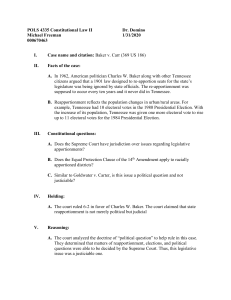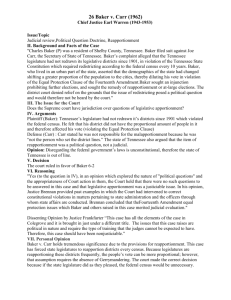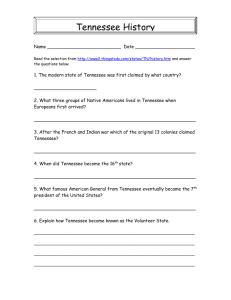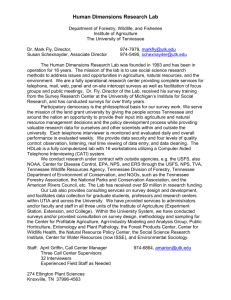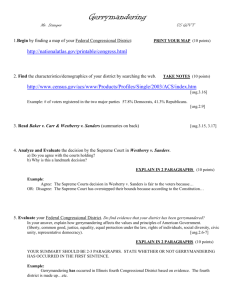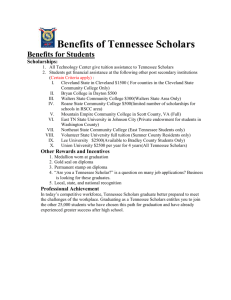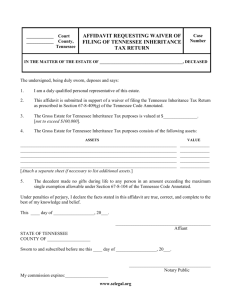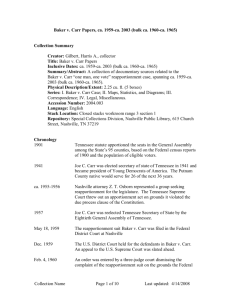Baker v. Carr (1962)
advertisement
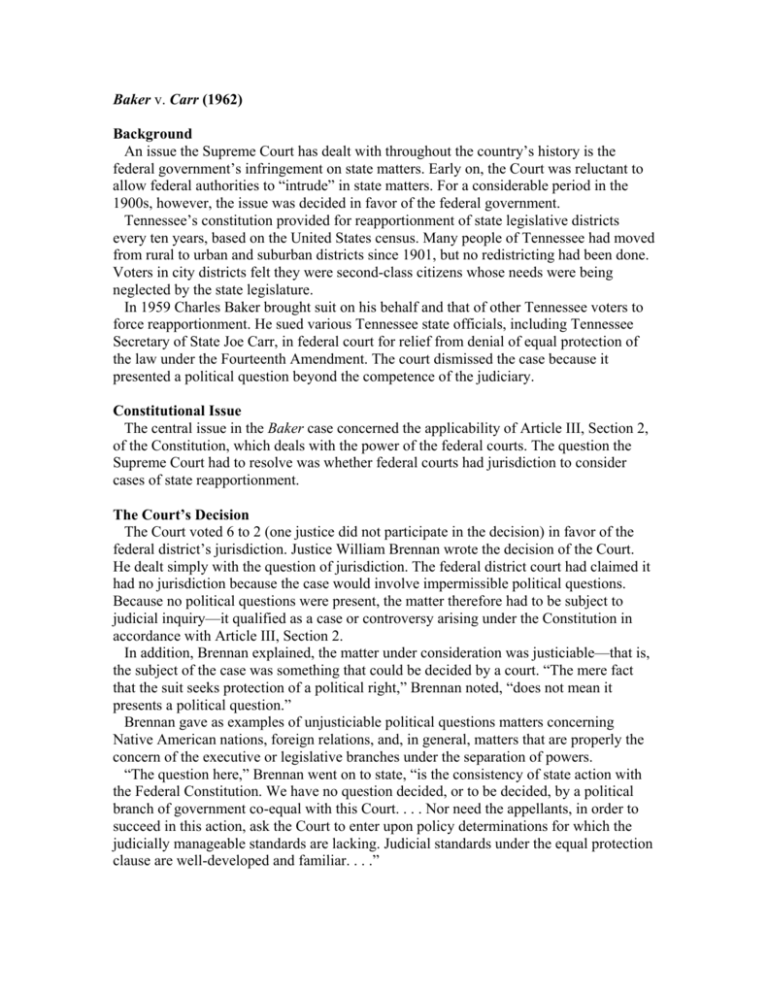
Baker v. Carr (1962) Background An issue the Supreme Court has dealt with throughout the country’s history is the federal government’s infringement on state matters. Early on, the Court was reluctant to allow federal authorities to “intrude” in state matters. For a considerable period in the 1900s, however, the issue was decided in favor of the federal government. Tennessee’s constitution provided for reapportionment of state legislative districts every ten years, based on the United States census. Many people of Tennessee had moved from rural to urban and suburban districts since 1901, but no redistricting had been done. Voters in city districts felt they were second-class citizens whose needs were being neglected by the state legislature. In 1959 Charles Baker brought suit on his behalf and that of other Tennessee voters to force reapportionment. He sued various Tennessee state officials, including Tennessee Secretary of State Joe Carr, in federal court for relief from denial of equal protection of the law under the Fourteenth Amendment. The court dismissed the case because it presented a political question beyond the competence of the judiciary. Constitutional Issue The central issue in the Baker case concerned the applicability of Article III, Section 2, of the Constitution, which deals with the power of the federal courts. The question the Supreme Court had to resolve was whether federal courts had jurisdiction to consider cases of state reapportionment. The Court’s Decision The Court voted 6 to 2 (one justice did not participate in the decision) in favor of the federal district’s jurisdiction. Justice William Brennan wrote the decision of the Court. He dealt simply with the question of jurisdiction. The federal district court had claimed it had no jurisdiction because the case would involve impermissible political questions. Because no political questions were present, the matter therefore had to be subject to judicial inquiry—it qualified as a case or controversy arising under the Constitution in accordance with Article III, Section 2. In addition, Brennan explained, the matter under consideration was justiciable—that is, the subject of the case was something that could be decided by a court. “The mere fact that the suit seeks protection of a political right,” Brennan noted, “does not mean it presents a political question.” Brennan gave as examples of unjusticiable political questions matters concerning Native American nations, foreign relations, and, in general, matters that are properly the concern of the executive or legislative branches under the separation of powers. “The question here,” Brennan went on to state, “is the consistency of state action with the Federal Constitution. We have no question decided, or to be decided, by a political branch of government co-equal with this Court. . . . Nor need the appellants, in order to succeed in this action, ask the Court to enter upon policy determinations for which the judicially manageable standards are lacking. Judicial standards under the equal protection clause are well-developed and familiar. . . .” Questions for Analysis and Debate 1. The background of this case states that urban citizens of Tennessee felt like second-class citizens because of the lack of state reapportionment. What do you think must have happened in the absence of reapportionment to make life difficult for city-dwellers? 2. Do you think Baker was justified in suing Tennessee state officials in federal court? Would you have done the same thing in his position? 3. Choose a side in this case. Choose to argue for Charles Baker or Joe Carr (state of Tennessee). After you choose a side, write a list of arguments for your side of the case. As a class, choose sides and debate this issue. Should federal courts be able to rule on cases dealing with state reapportionment?
